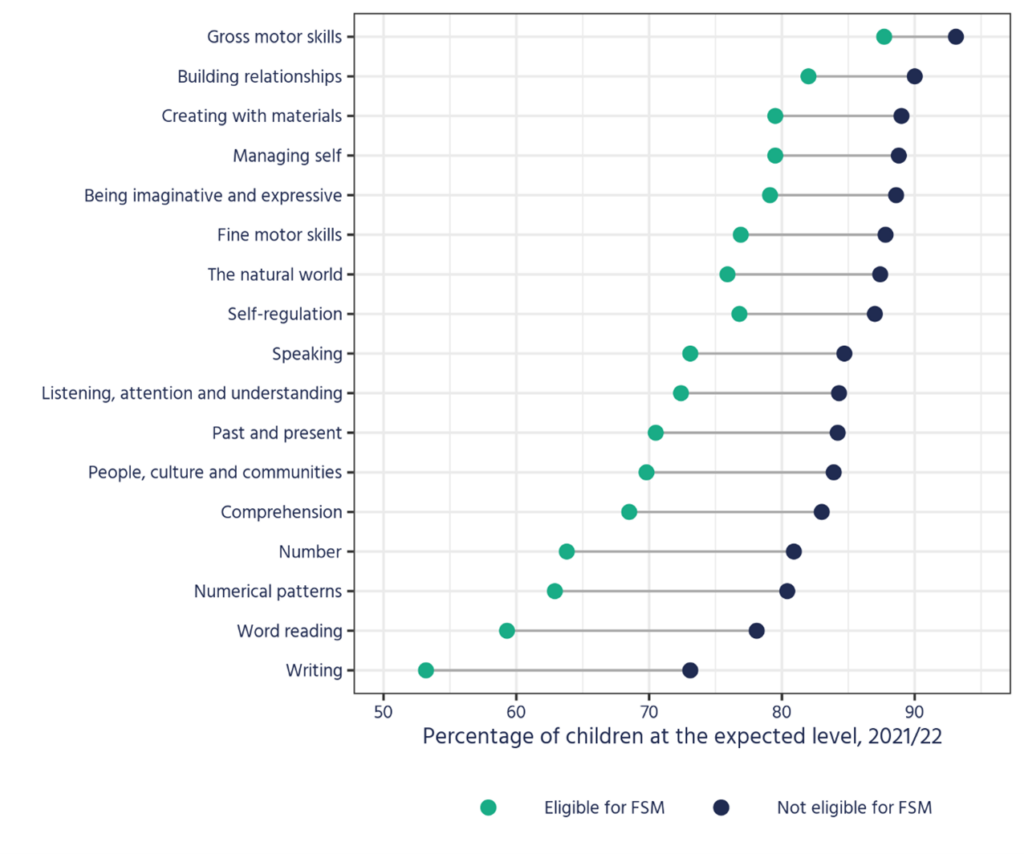The Early Years Foundation Stage profile is a statutory assessment of children’s development at the end of reception year based on 17 early learning goals, and is intended to provide intended to provide a reliable, valid, and accurate assessment of every child’s development.
Following two years of no Early Years Foundation Stage (EYFS) assessments due to COVID-19, the results released yesterday show that in 2021/22 only 65% of children had a good level of development. While not directly comparable to previous years due to changes in the assessments, in 2018/19, 72% of children had a good level of development.
Concerningly, less than half of children eligible for free school meals (49%) had a good level of development compared to 69% of children not eligible for free school meals (FSM). Among individual early learning goals, there are particularly large gaps in the percentage of children at the expected level for writing, word reading, numerical patterns and numbers.
Figure: Percentage of children at the expected level by early learning goal and eligibility for FSM, 2021/22

There were also large geographic differences in the percentage of children with a good level of development, ranging from 55% in the 10% most deprived neighbourhoods to 75% in the 10% least deprived areas. Across local authorities, the percentage of children with a good level of development ranged from 53% in Manchester to 74% in Richmond upon Thames and 80% in the Isles of Sicily. There was an even wider range in the percentage of FSM children with a good level of development, from 35% in West Berkshire to 67% in Hackney.
It is only by getting early education right that it will be possible to make sure that every child leaves school with the qualifications they need to live a successful life, and to close the attainment gap between children receiving FSM and their peers. Evidence shows that children who receive high quality early education go on to get better GCSE results at 16.[i] But getting early education right does so much more than that. All the things that children value most – not only education, but good mental and physical health, happy, loving relationships with family, great careers – have their foundations laid by the quality-of-care children receive in the early years. Research shows us that children who are falling behind at the age of 5 are not only far more likely to be struggling with reading and writing at the end of primary school but are also more likely to be excluded and to have involvement from children’s social care.[ii] Getting early education right will therefore have wide-ranging positive repercussions.
The Children’s Commissioner has set out practical recommendations for driving up the quality of provision in the early years, by making better use of schools and providing more support to childminders. There is also a need for better data to help us understand how individual children are progressing, and the quality of provision.






